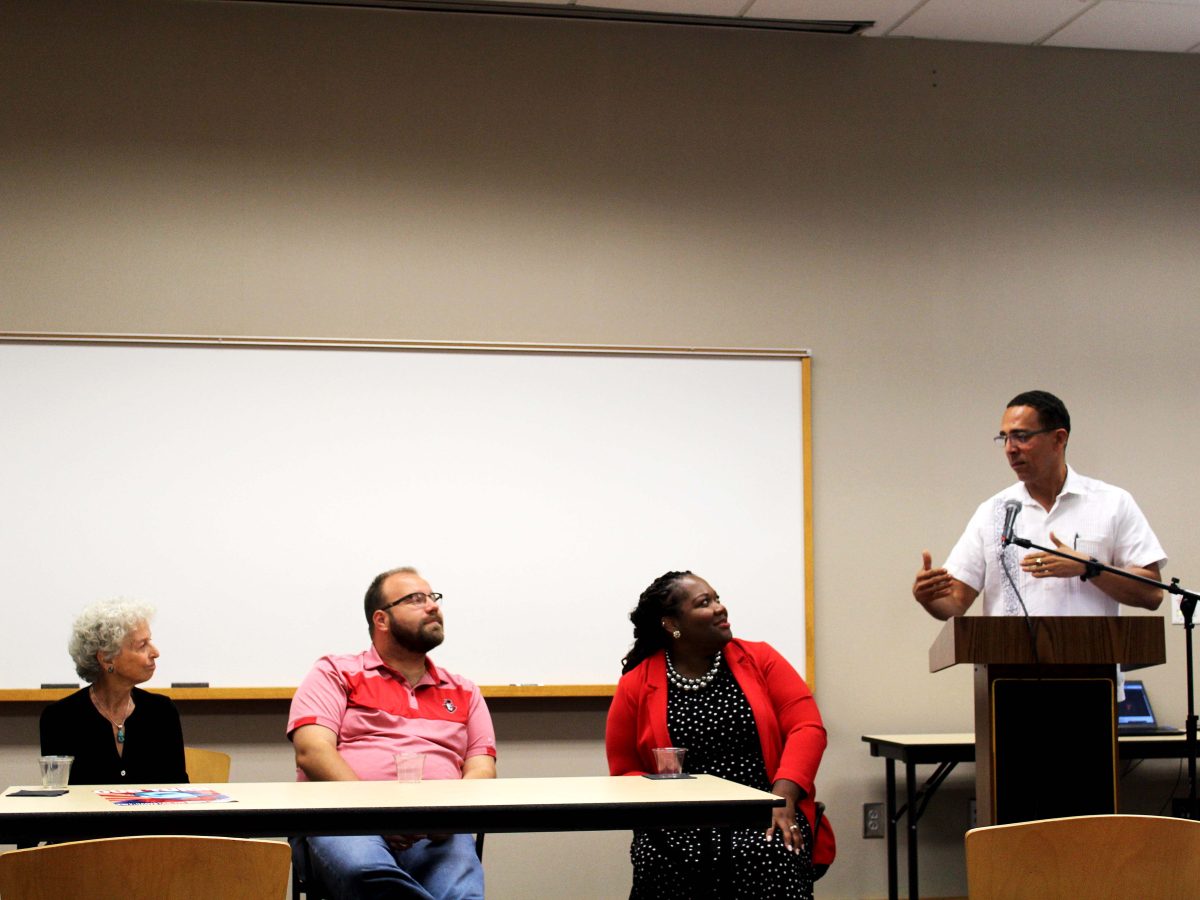By limiting our paper, the Pharos printing system seems like it is putting a dent in our study habits, but students should know they are actively conserving resources and helping preserve their environment.
Pharos is a print management system that was fully activated in computer labs on May 31.
A print management system makes a big impact on our sustainability footprint because of the amount of paper, toner and energy saved over time. It saves money in the student Technology Access Fee (TAF) account dedicated to educational technology projects that otherwise would not be possible.
Pharos Task Force Coordinator Laura Prange said, “It’s all about saving paper, reducing the amount of paper we use, and definitely increasing our recycling, but we always attempt to reduce before we recycle – that’s just the sustainability approach.”
At the beginning of each semester each student account is allotted $30 worth of print-outs.
SGA President Ryan Honea said, “From a green perspective, Pharos is definitely working; students are looking to alternative options to paper.”
This seems to be true. Students are now more hesitant to print notes and PowerPoint slides for class.
Junior biology major Sierra Molloy prints about 10 to 15 pages each week for her classes.
“The system works fine, I just don’t like having to pay for it. My least favorite part is that there is no roll over,” Molloy said.
Thirty dollars normally seems like a lot of money to college students when they are spending it. However, it does not seem like very much when they are told to ration it for the entire semester, especially for students who are already having to equally separate their meals each week.
“I have had a problem when the system went down, and I had to print something and that can be frustrating, especially when you have to get to class soon,” Molloy said.
Like most technology systems, Pharos is not perfect. According to Associate Vice President and Chief Information Officer Judy Molnar, Pharos has experienced two outages since the beginning of the Fall 2016 semester – one affecting only the mobile Pharos Print app. The Pharos technical support group has created additional procedures to prevent future outages.
The good news is, students at APSU are actually conserving resources.
Sophomore health and human performance major Felishia Gant, who works as a student librarian, said, “In the past we would have to refill the printer paper every hour, and now we only refill every three to four hours.”
Some students have not been affected by the new printing system’s limitations, but are worried about what the rest of the semester has in store.
Sophomore business major Amanda Wegner said, “It hasn’t limited my studying or my being prepared for class just yet, but my accounting lab requires a packet that is around 73 pages long.”
Whether students like the new system or not, it is here to stay. In fact, several other schools in the state have already been using print management systems, including Middle Tennessee State University and Tennessee Tech University.
“Professors are not using Pharos, but we are encouraging them to utilize D2L so students can access everything they need online,” Prange said.
As of now, plans to limit professors’ printing are unclear, however it is essential that the entire campus community be involved in paper conservation.
“A committee has been formed to actively pursue ways to use technology and digital resources rather than printing, and it’s already happening on our campus in certain departments such as Admissions,” Prange said.
Paper production and consumption practices needed to be altered, otherwise the growing demand for paper would continue to put pressure on the Earth’s last remaining natural forests and endangered wildlife.
“We are definitely interested in pursuing more sustainable energy in different aspects. APSU is one of the greenest campuses in the state for a reason,” Honea said.
Students need to understand Pharos is not taking away free printing, only limiting it, and doing so in order to conserve resources while fairly distributing them. Pharos is limiting our paper, but helping us preserve our environment.





